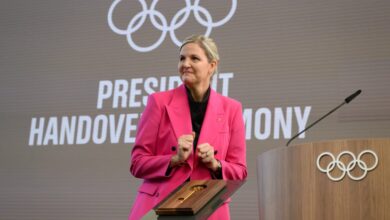ZIFA’s Controversial Eligibility Requirements Spark Outcry

The Zimbabwe Football Association (ZIFA) recently announced contentious new requirements for candidates aspiring to become its chairperson: a minimum of five O-Level passes and proof of residence in Zimbabwe for at least two years prior to the election. This policy has ignited intense debate within the football community and among fans, with many arguing it could exclude some of the most experienced and respected football figures in the country.
Education vs. Experience: A Contentious Debate
Rosemary Mugadza, a member of ZIFA’s Normalisation Committee (NC), defended the new rule, emphasizing her belief in educational standards. “I was given a chance by my parents to go to school, and they made sure that I have the five O Levels,” she said. “I’m a CAF instructor, where a certain level of education is required for you to participate in terms of imparting knowledge to other fellow females.”
Mugadza went on to encourage former footballers to prioritize their education if they hope to play a leadership role in ZIFA. “It’s the right time for us former footballers to enroll into night schools to get the required academics,” she added, noting the opportunities that exist for younger players to pursue scholarships that combine sports and formal education.
However, many in the football community feel the new requirements are exclusionary. They argue that experience on the field, not just academic qualifications, should be the primary measure of a candidate’s ability to lead the football association.
A Football Legend’s Perspective
Moses Chunga, a revered figure in Zimbabwean football, has taken a diplomatic yet critical stance on the issue. Reflecting on his own career, Chunga highlighted why many footballers, past and present, lack the academic qualifications now being emphasized.
“From the age of 8, football was all that mattered to me. I would spend most of my time training, nurturing my talent,” Chunga explained. “By the time one is 18, they have reached their peak growth and skill development. To achieve this, players sacrifice a lot of time that would have been spent in a classroom.”
Chunga urged fans and officials to consider the reality that most professional players devote their youth to training, leaving little room for traditional academic pursuits. He noted that those who manage to balance both are rare exceptions and called for greater empathy and understanding from decision-makers.
The Case of Peter Ndlovu
The new requirements have raised questions about the fate of renowned football figures like Peter Ndlovu. Known as one of Zimbabwe’s greatest footballers and the first African to play in the English Premier League, Ndlovu’s leadership skills are well-documented. Despite his significant contributions as an administrator for South Africa’s Mamelodi Sundowns, Ndlovu’s eligibility under the new rules is uncertain due to his long-term residence outside Zimbabwe and the ambiguity surrounding his academic qualifications.
Fans argue that excluding figures like Ndlovu due to these regulations would be a disservice to the sport. Many see him as an invaluable asset with extensive local and international experience that transcends academic requirements.
The Justification for O Levels
Lincoln Mutasa, another influential voice in the football administration, defended the academic requirement, stating that the aim was to ensure basic literacy and communication skills for effective leadership. “Five O levels are for seeing someone’s ability to read, write, understand numbers, and communicate with our principles at CAF or FIFA,” Mutasa explained. “It’s not a major hurdle but a basic stepping stone.”
Critics, however, see this stance as an example of academic snobbery that overlooks the unique skills and experiences that former players bring. They argue that real-world exposure and the ability to connect with players and fans should weigh just as heavily as academic credentials.
Exclusion vs. Inclusivity
The debate has taken on broader implications, with many commentators warning that the new policy might deepen the rift between football administrators and fans. The policy has been labeled as a form of “academic elitism,” prioritizing formal education over institutional memory, natural talent, and practical leadership skills.
“It will limit collaboration and knowledge sharing while fostering elitism and exclusivity,” an analyst noted. “This approach disregards the real-world impact and experience that are crucial for effective leadership in sports.”
A Call for Balance
As the new requirements await ratification by the Sports and Recreation Commission, there are calls for a more balanced approach that respects both education and experience. The chairperson’s role should be consultative, involving input from former players, fans, and administrators alike. This approach would bridge the long-standing divide in Zimbabwean football and ensure that the sport remains inclusive and reflective of the community it serves.
In the end, the hope is that ZIFA will recognize the importance of combining formal qualifications with the invaluable experience of seasoned footballers. Only then can Zimbabwe’s football leadership be truly representative and effective in advancing the sport both locally and internationally.




